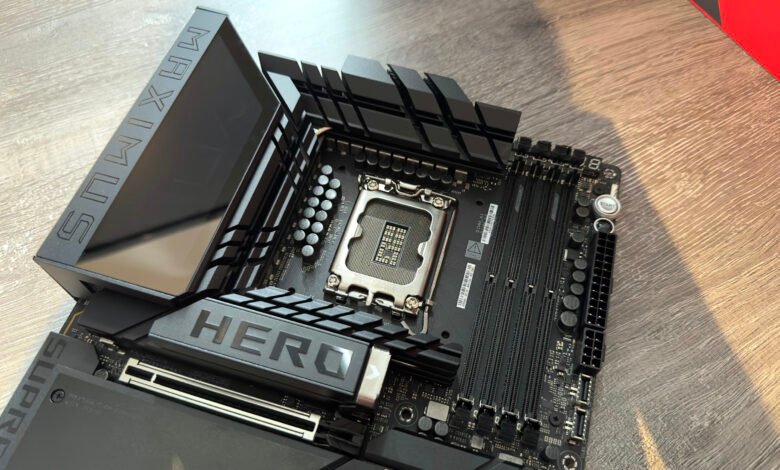Asus Confirms Intel 800-Series Motherboards Support DDR5-7200 Without XMP

▼ Summary
– Asus announced that its 800-series motherboards now support DDR5-7200 RAM without overclocking, using JEDEC standards.
– JEDEC is a standards consortium, and RAM labeled as JEDEC-compliant is considered not overclocked and runs at default ratings.
– Intel’s Core Ultra 200S processors officially support DDR5 up to 6400 MT/s but can handle faster speeds, though not guaranteed without overclocking.
– The author questions why Intel did not announce native support for 7200 MT/s at launch, speculating it might be reserved for a future Arrow Lake Refresh.
– Faster RAM speeds like 7200 MT/s may not noticeably improve gaming performance on Arrow Lake CPUs due to inherent latency issues and cache limitations.
If you’re building a gaming PC, chances are you’re already using overclocked RAM, even if you don’t realize it. Enabling XMP or EXPO profiles essentially pushes your memory beyond its default specifications, a common practice among enthusiasts. Now, Asus has made a noteworthy announcement: its Intel 800-series motherboards officially support DDR5-7200 speeds without requiring any overclocking, offering a plug-and-play high-performance memory experience.
The company shared the news in a straightforward social media post, accompanied by screenshots from CPU-z displaying memory timings on an Asus Prime Z890-P motherboard. These screenshots highlight several JEDEC profiles, specifically #14 through #17, confirming the out-of-the-box support for 7200 MT/s.
JEDEC, the Joint Electron Device Engineering Council, establishes industry-wide standards for components like RAM. When memory operates under JEDEC specifications, it means the system runs at officially validated speeds without overclocking. Intel’s Core Ultra 200S processors are rated for DDR5-6400 under JEDEC guidelines, though they can often handle faster modules. However, speeds beyond that typically rely on overclocking both the RAM and the memory controller, which isn’t always guaranteed.
Asus claims that with its 800-series boards, users can achieve DDR5-7200 performance straight out of the box, no manual tuning required. This raises an interesting question: why didn’t Intel highlight this capability during the Arrow Lake launch? One theory suggests Intel may be reserving higher native memory support for a future refresh, similar to how the 14th Gen chips offered modest upgrades over their predecessors.
If that’s the case, Asus might have inadvertently revealed a feature Intel planned for a later release. We’ve reached out to Asus to clarify whether existing 800-series motherboard owners will need a BIOS update to access this JEDEC DDR5-7200 support and will update as more information becomes available.
When it comes to real-world benefits, faster RAM doesn’t always translate to significant gains, especially in gaming. Previous tests with speeds up to 8200 MT/s showed minimal impact on performance, partly due to Arrow Lake’s inherent latency limitations. While higher memory clocks can help, overcoming these constraints requires broader architectural improvements, including better cache systems and overall processor efficiency.
For meaningful performance uplifts, what users really need is a more advanced CPU architecture, perhaps something along the lines of the anticipated Nova Lake. Until then, support for higher JEDEC speeds is a welcome convenience, even if its practical impact remains subtle.
(Source: PC Gamer)